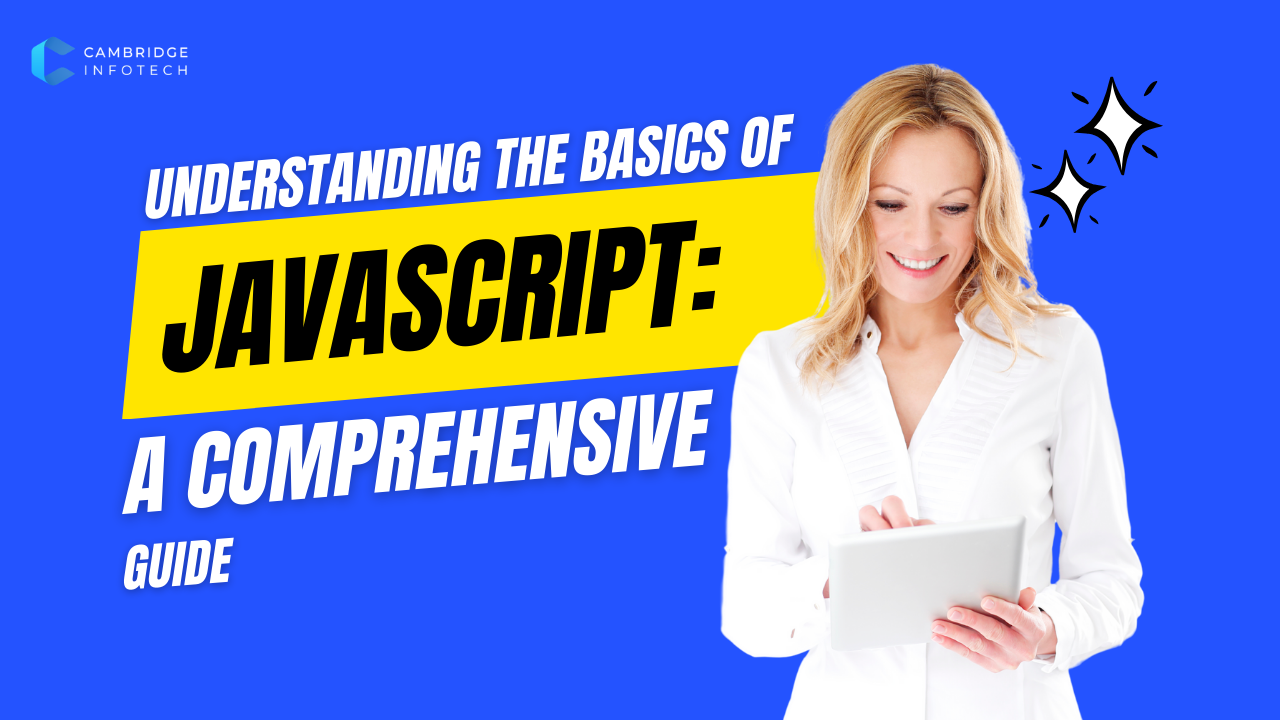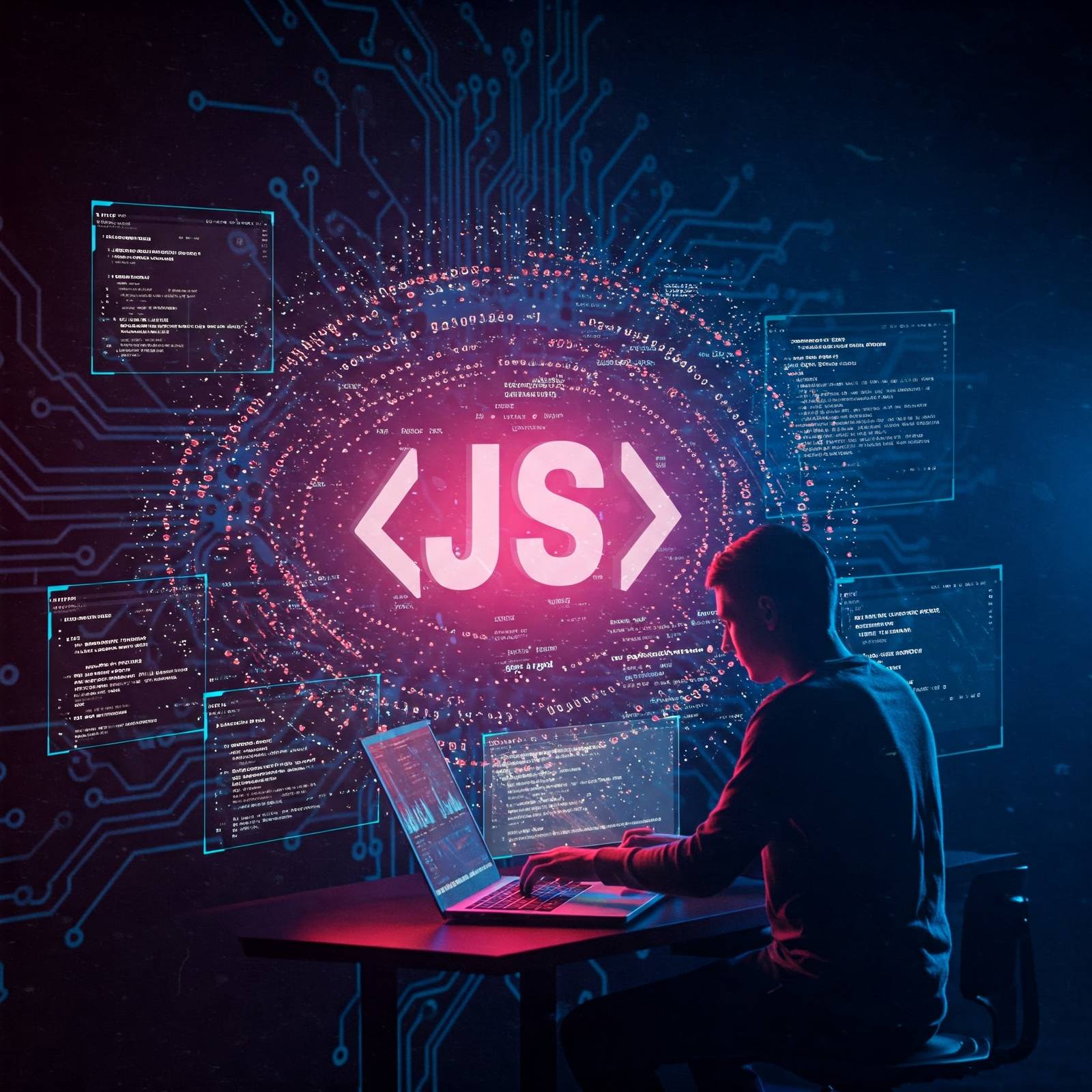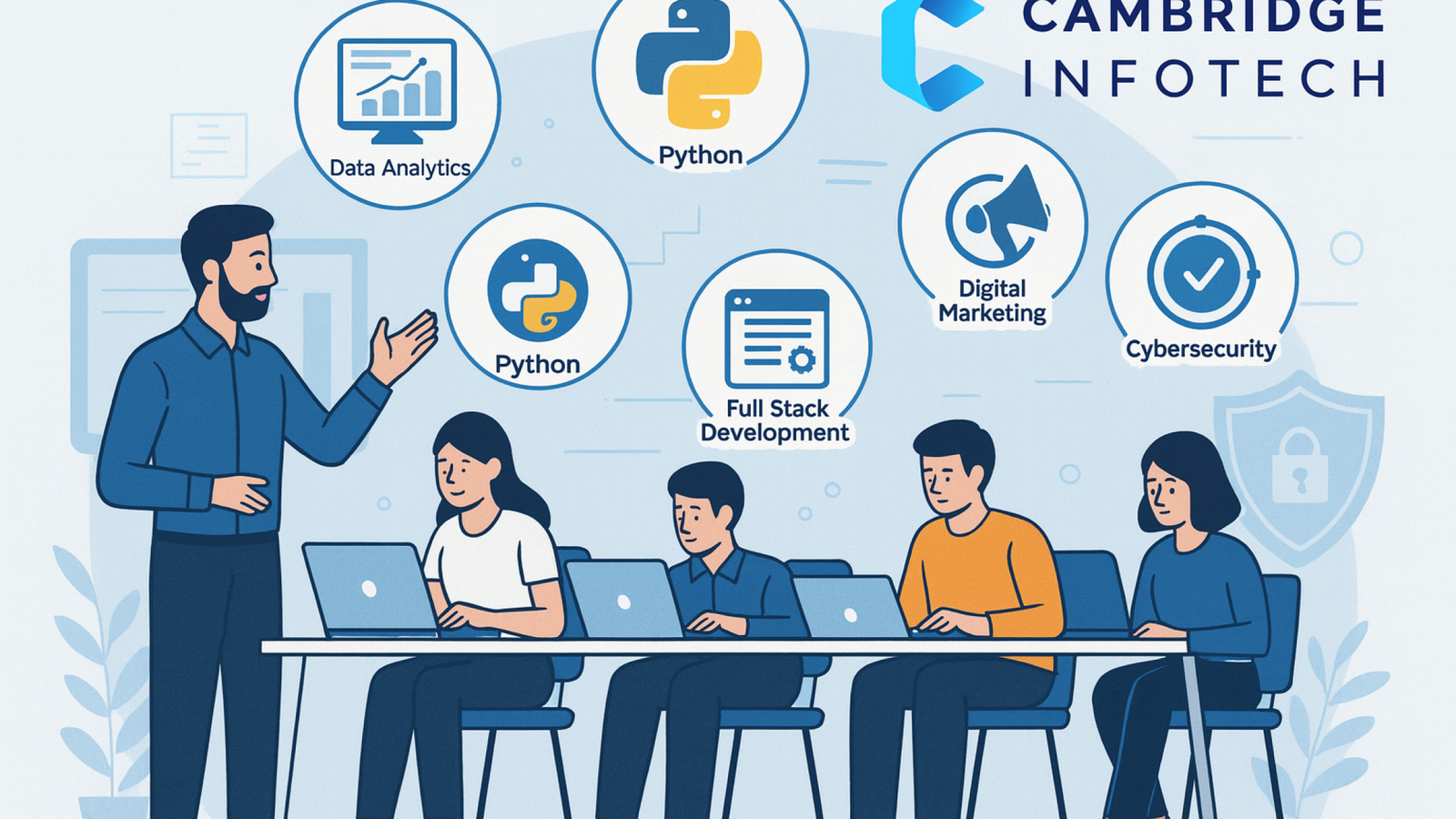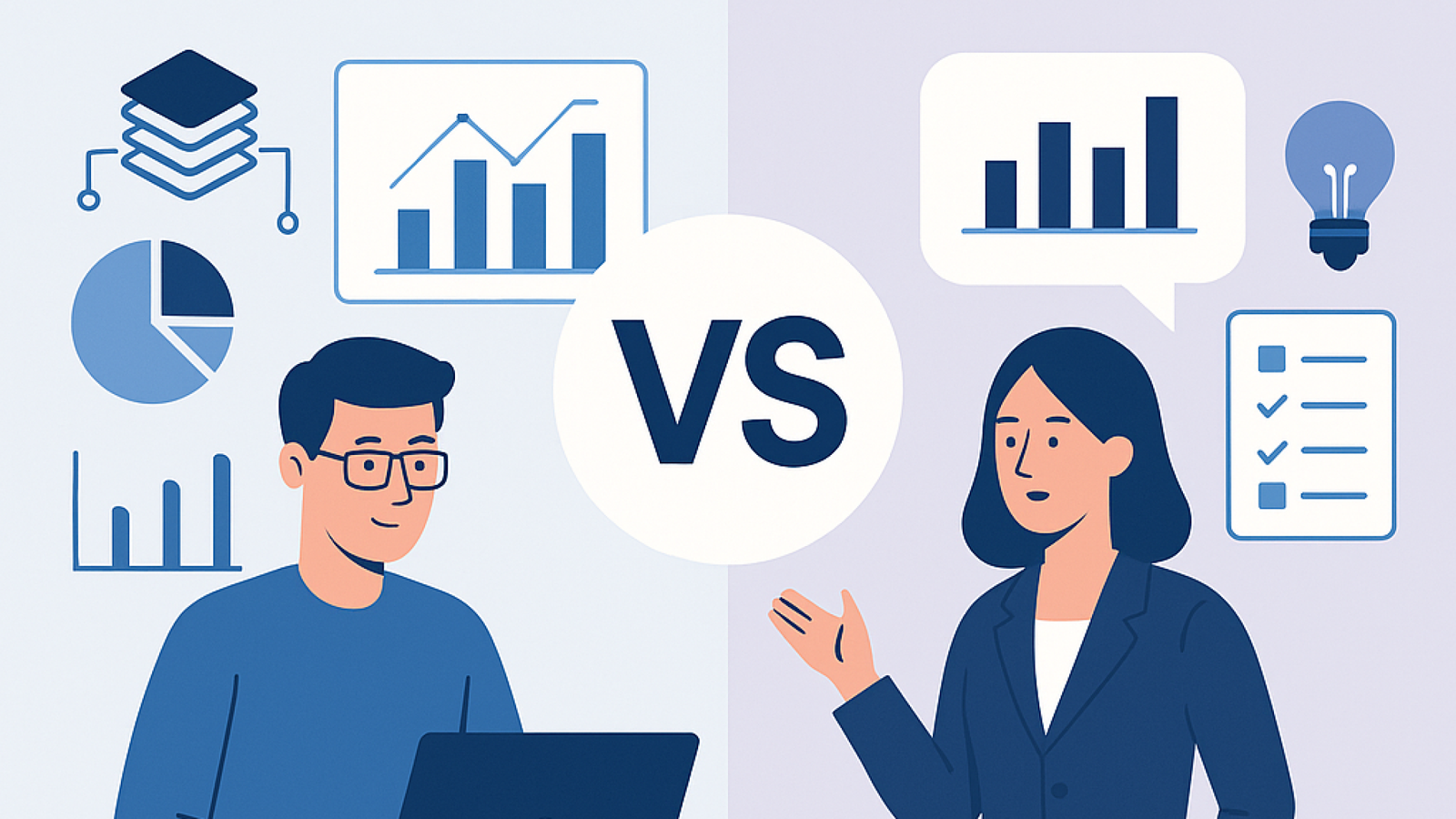What is JavaScript? A Beginner’s Guide to Learn JS

What is JavaScript?
A Comprehensive Guide for Beginners in 2025
Introduction to JavaScript
If you’ve ever asked yourself “What is JavaScript?”, you’re not alone. As the backbone of modern web interactivity, JavaScript powers dynamic elements on nearly every website you visit today. At Cambridge Infotech, our expert-led JavaScript courses help students and professionals master this essential programming language with hands-on training.
This ultimate guide will explain what JavaScript is, why it’s so important, and how you can start learning it today.
What is JavaScript?
Understanding the Basics
JavaScript (commonly called JS) is a lightweight, interpreted scripting language that enables interactive web pages. While HTML structures content and CSS handles styling, JavaScript brings websites to life with dynamic functionality.
Key Features That Define What JavaScript Is:
✔ Client-Side Execution – Runs directly in web browsers
✔ Versatility – Used for both front-end (React, Angular) and back-end (Node.js)
✔ Event-Driven Programming – Responds instantly to user actions
✔ Cross-Browser Compatibility – Works on Chrome, Firefox, Safari, and Edge
When people ask “What is JavaScript?”, the simplest answer is: It’s what makes websites interactive instead of static.
Why Learn JavaScript?
Top 5 Reasons
Understanding what JavaScript is leads to the next question: Why should you learn it?
Industry Demand for JavaScript Skills
Powers 97.8% of all websites (W3Techs)
Ranked as #1 most used programming language (Stack Overflow 2023)
Beginner-Friendly Syntax
Easier to learn than many other languages
Immediate visual feedback in web browsers
Full-Stack Development Capabilities
Strong Community Support
Over 2.4 million JavaScript questions on Stack Overflow
Countless free tutorials and documentation
Excellent Career Opportunities
Average salary for JavaScript developers: $110,000+ in the US (Indeed)
Needed for web, mobile, game, and even IoT development
At Cambridge Infotech, our JavaScript courses prepare students for these exact opportunities with project-based learning.
How Does JavaScript Work?
A Technical Breakdown
To truly understand what JavaScript is, let’s examine how it functions:
HTML loads the page structure
CSS applies visual styling
JavaScript adds behavior through:
Event handling
Asynchronous operations
Practical Example of JavaScript
<script> function showMessage() { alert("You just learned what JavaScript is!"); } </script> <button onclick="showMessage()">Click Me</button>
Run HTML
This demonstrates what JavaScript is in action – creating interactive responses to user input.
What is JavaScript Used For? Real-World Applications
Now that we’ve covered what JavaScript is, let’s explore its uses:
Web Development
Form validations
Dynamic content updates
Mobile App Development
React Native for cross-platform apps
Game Development
Browser-based games
Server-Side Programming
Node.js for backend services
Building APIs and microservices
Desktop Applications
Electron framework (used by Slack, VS Code)
How to Learn JavaScript Effectively
For those who now understand what JavaScript is and want to learn it:
Master the Fundamentals
Variables, data types, and operators
Functions and scope
Work on Practical Projects
Build a calculator
Create a weather app
Develop a simple game
Explore Advanced Concepts
Asynchronous JavaScript
Enroll in Structured Training
Cambridge Infotech’s JavaScript courses offer:
✅ Beginner to advanced curriculum
✅ Real-world projects
✅ Industry-expert instructors
✅ Career support services
Conclusion
What is JavaScript and Why It Matters
So, what is JavaScript? It’s:
The programming language of the web
Essential for modern development
Your gateway to high-paying tech careers
Whether you’re starting your coding journey or upgrading your skills, Cambridge Infotech’s JavaScript courses provide the perfect learning path.
Ready to master JavaScript? Enroll Now and transform your career today!
FAQs
What is JavaScript mainly used for?
A: Primarily for adding interactivity to websites, but also for mobile apps, servers, and games.
Is JavaScript the same as Java?
A: No! Despite the similar names, they’re completely different languages (MDN explanation).
How long does it take to learn JavaScript?
A: Most students grasp fundamentals in 3-6 months with consistent practice (freeCodeCamp guide).
Can I get a job just knowing JavaScript?
A: Absolutely! Many entry-level web developer positions require only JavaScript skills (Indeed career guide).
Learn more about
Cambridge InfoTech offers a comprehensive Flutter course designed to help developers master cross-platform app development. The course covers essential topics like Dart programming, UI/UX design, state management, and Firebase integration. With hands-on projects and expert guidance, learners can build high-performance iOS and Android apps efficiently. Whether you’re a beginner or an experienced developer, this course provides the skills needed to create scalable, modern applications using Flutter’s powerful framework.
Cambridge InfoTech provides industry-focused Digital Marketing Training in Bangalore, equipping learners with essential skills in SEO, social media marketing, PPC, content marketing, and analytics. The hands-on course is designed for professionals and beginners, offering practical insights into the latest digital marketing trends. With expert trainers and real-world projects, participants gain the expertise needed to excel in the fast-evolving digital landscape. Whether you’re looking to upskill or start a career in digital marketing, this training program helps you achieve your goals effectively.
Master cloud technologies with Cambridge InfoTech’s Cloud Computing Courses in Bangalore. This comprehensive training covers AWS, Azure, Google Cloud, and DevOps, equipping you with in-demand skills for the IT industry. Designed for beginners and professionals, the course includes hands-on labs, real-world projects, and certification guidance. Learn from industry experts and boost your career in cloud computing with practical, job-ready training.
Explore cutting-edge Artificial Intelligence topics with Cambridge InfoTech’s expert-curated resources. Dive into machine learning, deep learning, NLP, computer vision, and AI applications across industries. Whether you’re a beginner or a tech professional, gain insights into the latest AI trends, tools, and real-world use cases. Stay ahead in the fast-evolving AI landscape with practical knowledge and hands-on learning. Unlock the future of technology—start mastering AI today
Discover the different types of hacking with Cambridge InfoTech’s expert insights. Learn about ethical hacking, black-hat hacking, penetration testing, and cybersecurity defenses. Whether you’re an IT professional or a beginner, understand hacking techniques, vulnerabilities, and how to protect systems from cyber threats. Gain practical knowledge to build a career in cybersecurity or enhance your technical skills. Stay informed and secure in the digital world with Cambridge InfoTech!”








